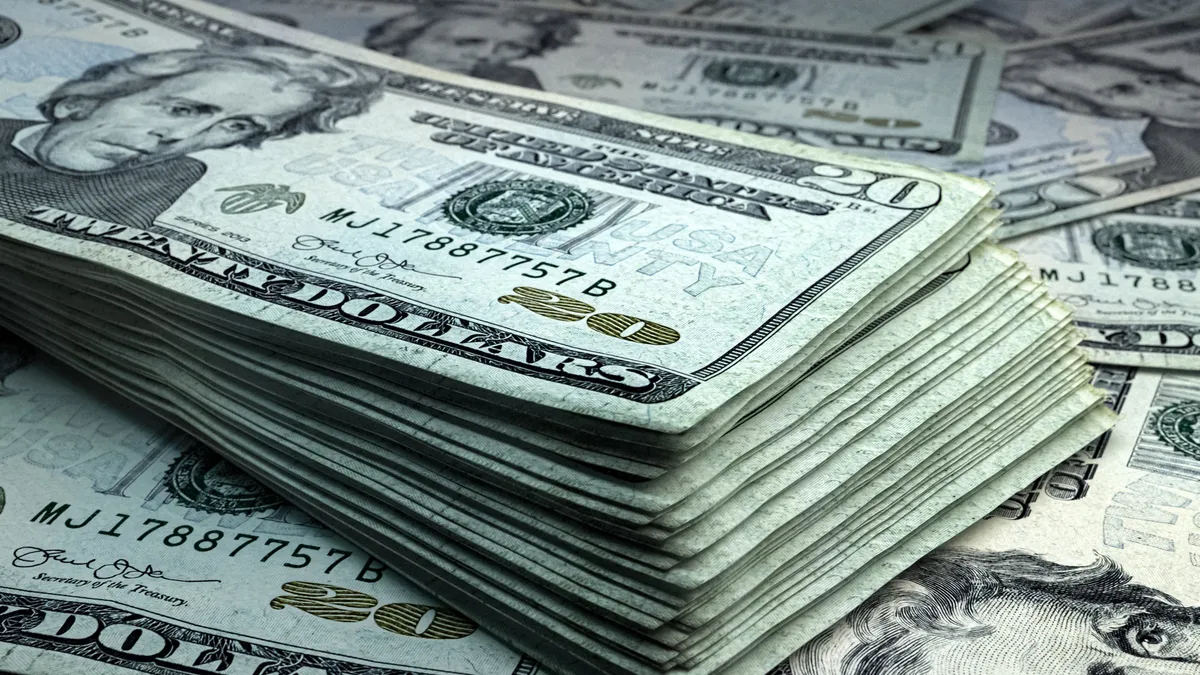Dive Brief:
- Inflation rose last month as companies passed on to consumers the cost of tariffs, affirming a Federal Reserve stance of holding borrowing costs steady this year while assessing the impact from Trump administration changes to trade and other policies.
- The consumer price index increased at a 2.7% annual rate in June compared with 2.4% the prior month, the Bureau of Labor Statistics said Tuesday, well above the Fed’s 2% inflation target. Imported goods led the price gains during June, with apparel, household furnishings and appliances rising 0.4%, 1% and 1.9%, respectively.
- The report delivered “a knock-out punch to tariff-inflation deniers,” Pantheon Macroeconomics Chief U.S. Economist Samuel Tombs said in a client note. “Tariff costs are strikingly visible,” he said, noting that the price of goods excluding food, energy and autos rose 0.5%, the most in three years.
Dive Insight:
The newest sign that inflation persists above the Fed’s target prompted traders in interest rate futures to all but rule out a central bank reduction to the federal funds rate during a July 29-30 policy meeting, according to the CME FedWatch Tool. Traders raised odds of no change to 97% from 94% on Monday.
The inflation report will probably do little to settle a debate among policymakers over whether import duties will fuel a one-time or sustained increase in price pressures.
Price gains in services and other categories remained subdued in June, with airline fares and accommodation prices falling 0.1% and 2.9%, respectively, the BLS said.
Rents increased just 0.23%, slightly above the 0.21% gain in May, which was the smallest increase since mid-2011. Also, the price of new vehicles declined 0.3% in June while the price of used cars and trucks fell 0.7%, the BLS said.
Fed Chair Jerome Powell and other policymakers have favored resuming cuts to the main interest rate only after confirming that import duties will not trigger higher inflation beyond a few months.
“Continued overall solid economic conditions enable the Fed to take the time to carefully assess the wide range of incoming data,” Boston Fed President Susan Collins said Tuesday in a speech. “Thus, in my view, an ‘actively patient’ approach to monetary policy remains appropriate.”
At the same time, two Fed governors appointed by President Donald Trump have suggested this month that tariff-induced inflation will pass and expressed openness to considering a reduction to the benchmark rate as early as the next meeting.
Trump for weeks has pressured Powell to reduce the federal funds rate, which he says would lead to a reversal in the federal government’s mounting borrowing costs.
"Consumer Prices LOW. Bring down the Fed Rate, NOW!!!" Trump said Tuesday in a social media post after release of the inflation data. He has repeatedly said Powell should slash the federal funds rate — which now ranges from 4.25% to 4.5% — by as much as 3 percentage points.
The call for lower borrowing costs from Trump and White House officials prompted criticism Tuesday from JPMorgan Chase CEO Jamie Dimon.
“I think the independence of the Fed is absolutely critical,” Dimon said after the bank announced quarterly earnings, according to the Wall Street Journal. “Playing around with the Fed can have adverse consequences, the absolute opposite of what you might be hoping for.”















